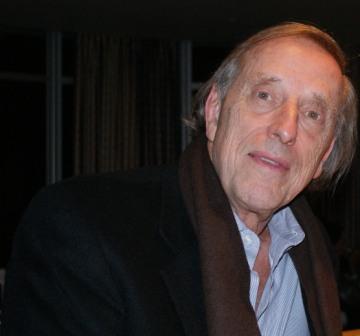
By Reneilwe Malatji & Mokgaetji Shadung
Source: Grocott’s Mail
Well-known author and professor Ariel Dorfman gave a public lecture entitled “Looking for a Home in Literature and Liberation” at Rhodes University last week.
He said that words can be used as a powerful medium with which to address problems affecting society and bring about change.
Visiting Grahamstown for the second time, after having last been here 13 years ago, Dorfman said, “I always say that I made the mistake of not being born here because I feel at home here. The country is so alive.”
Dorfman said that he found it fitting that his talk is based on “the two loves of my life, which are literature and liberation”.
“After all it was the writing which had exiled me from Chile in the same way that it had brought me back,” Dorfman said, referring to the 1973 military coup d’etat by General Augusto Pinochet where President Salvador Allende was murdered.
Coup connection
He regards the coup as the defining moment which shaped the person that he is today. On the day the coup took place, he was supposed to have been visiting the palace but someone else had taken his place.
“The person who had switched places with me got killed,” he said. Dorfman then went into exile and discovered that leaving his country had destroyed his passion for writing. “I felt that my writing had failed the revolution,” he said.
“My literature was unable to make the world the way it was supposed to be.” As a result, he asked himself what sense there was for him “to add to the hopelessness,” with his writing.
Decades later, Dorfman finds himself at Rhodes telling the audience how writing helped him to deal with the trials of being in exile.
He urged the audience to use words in the same way that he did to fight the issues which affect society today. He managed to turn the experiences of his life in exile into storytelling, which can have an impact long after the event has been forgotten.
Dorfman came to the realisation that he was only able to accept what was happening in his country by writing about it.
“Language and literature had saved me,” he said. “It allowed me to pour out my emotions.”
Life works
Reading extracts from his memoir Heading South, Looking North: A Bilingual Journey, he shared some of the experiences of his time in exile and memories of the coup with the audience.
The author of many novels, plays and poetry, his books include the play Death and the Maiden which was made into a film by Roman Polanski and stars Sigourney Weaver and Ben Kingsley.
His other works include The Nanny and the Iceberg (1999) and Mascara (2004), among many others.
Speaking about why he came to come to Grahamstown to give a talk, Dorfman said that he had chosen Grahamstown over “obvious Cape Town and necessary Johannesburg,” because he was honoured to be the first Latin American to be invited to speak at the lecture.
Dorfman urged guests to be proud of how far the country had come despite the challenges that it still faces as a young democracy.
“I know that as people you may have a lot to be disappointed about but those things should not include your country,” adding that he loves the country for the fact that South Africans speak so many languages.
